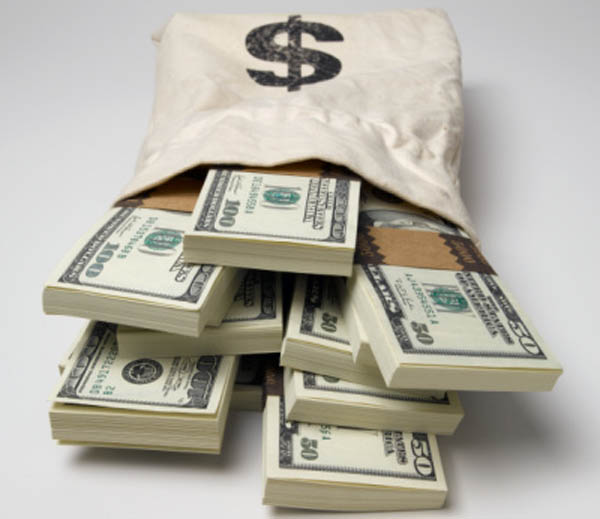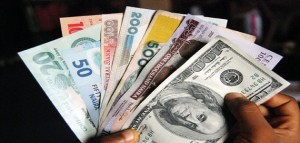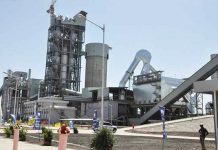
 The “419”, otherwise known as advance fee fraud, scam is well-known in Nigeria for boasting empty promises of stupendous returns which induce victims to willingly part with their valued possessions.
The “419”, otherwise known as advance fee fraud, scam is well-known in Nigeria for boasting empty promises of stupendous returns which induce victims to willingly part with their valued possessions.
These fraudsters, ply their trade nationwide with targets which cut across the social spectrum and surprisingly include otherwise, highly successful businessmen and professionals, who are usually gullible and driven by the unreasonable expectation of clearly unrealistic returns on their “investments”. Ultimately, the bubble would burst and much pain and sorrow would follow.
Similarly, the International Monetary Fund and other respectable international financial agencies and local economic experts, have commended the recent devaluation via a floating naira exchange rate as “investments” that would ultimately yield great dividends. We are encouraged to believe that the new forex regime will recharge our economy and sustain inclusive growth with increasing job opportunities, and also reduce our almost total dependence on export revenue from crude oil, by facilitating the realisation of a diversified economy.
It is also suggested that a floating naira rate will create a level playing ground, and encourage marketers to reduce the Nigerian National Petroleum Corporation’s present unwieldy monopoly of fuel imports and also attract investors to build more refineries.
Nonetheless, the promise that the new forex policy would attract much needed foreign investment inflow is probably the most notable claim by supporters of the new regime. Consequently, the Central Bank of Nigeria trusts that the reported $10bn to $15bn hurriedly evacuated from Nigeria when oil prices slumped, would be channelled back by foreign portfolio investors. Sadly, however, the present level of uncertainty and insecurity sustained by our socio-economic tensions may not encourage a quick return of such hot money inflow, for now.
Incidentally, the desperation of foreign portfolio investors to evacuate their funds from Nigeria contributed in no small measure to the present battered naira exchange rate. As usual, portfolio investors primarily target exceptionally high returns on the CBN and the Federal Government’s loans. Thus, such investors may borrow at lower rates, below five per cent from offshore banks and reap a harvest of 10 per cent and much more in Nigeria, even when the proceeds of these loans have not been socially impactful. Expectedly, however, portfolio investors would still want to be assured that, ultimately, their original profit projections would not be wiped out by another devaluation.
Furthermore, the elevated level of insecurity and naira rate instability may also deter potential “foreign direct investors”, whose operations add value to our industries and infrastructure while also creating more jobs. Thus, the sharp depreciation and a floating naira exchange rate will not immediately propel the expected return of over $10bn earlier scrambled away from Nigeria. Consequently, it will be clearly misleading to insist that a bountiful inflow of dollars will soon stabilise the exchange rate, as speculated by experts.
Conversely, barely eight hours after the commencement of the new forex regime, the cost of the “yet to be realised ‘regenerative’ benefits”, had already made horrendous dents on our economy. For a start, Nigeria’s erstwhile celebrated $510bn Gross Domestic Product immediately crashed below $350bn, while per capita income crashed from over $1000 to well below $600 as an attestation of deepening poverty. In addition, the dollar value of all equity listed on the Nigerian stock market also plunged from almost $48bn on Friday, June 17 to below $25bn on Monday, June 20, when the new forex regime commenced.
Invariably, all cash income and savings held in naira, also immediately fell below 60 per cent of their dollar purchasing value overnight. Similarly, the equally celebrated over $25bn accumulated national pension fund, also lost over $10bn, just like that, to imperil the future welfare of our senior citizens. In truth, we were all literally cut to size with government consent within 24 hours by the new forex policy and any offshore expenditure we all make, thereafter, will require almost 50 per cent more naira to fund.
Furthermore, all outstanding dollar denominated loans, (personal, corporate or government) will henceforth require much more naira to service and repay, while additional assets will be demanded to supplement existing collaterals. Consequently, widespread default on foreign loans and outstanding import bills will be common. In such an event, billions of dollars credit lines, which hitherto supportively restrained the cost of raw materials imports to local industries, may also be cut to compound spiralling operational costs and challenge the export competitiveness of Nigeria’s real sector.
The naira value of all external public sector debt obligations will similarly increase to raise the ratio between annual debt service charges and actual income well beyond the precarious level of 35 kobo on every N1 revenue. Worse still, if the 2016 budget deficit of N2tn is also captured, we may ultimately need to allocate over 50 per cent of earned revenue to service our debts in the near future!
Although the NNPC management has remained unexpectedly reticent on the impact of the new forex policy on fuel prices, however, the pump price of petrol cannot remain at N145/litre, if the naira exchanges for N280=$1 or more. Indeed, unless the NNPC accommodates a new round of subsidies, petrol will soon sell beyond N200/litre. Invariably, marketers will defer their fuel imports until the price issue is resolved, especially when they have to borrow up to 50 per cent more with higher interest rates to fund fuel imports. If however, in the interim, the NNPC’s congested import schedule falters, severe supply shortages will resurface, and extended queues and frustrating delays at fuel stations will return.
Nevertheless, since the budget 2016 made no provision for subsidy, a deregulated price regime will certainly spike petrol price and correspondingly propel inflation rate well above 20 per cent to create serious consequences for consumer demand and investment, with collateral adverse impact also on employment.
In addition, the recently established electricity tariff structure, predicated on naira exchange of N197=$1, will become unsustainable, and a further hike in electricity tariff will be inevitable, much against consumer expectation.
Sadly, the celebrated 30 per cent, 2016 capital budget, will also suffer, as the significant import components usually required for infrastructure and equipment may now require almost N300bn more to fully implement. Consequently, public expectation for urgent infrastructural remediation will still have to remain on hold.
Furthermore, our desire to diversify output and revenue sources away from crude oil will also become severely challenged by irrepressible production cost, which will invariably sustain inflation well beyond the current 16 per cent. In this event, the CBN will be compelled to raise monetary policy rate to levels that will push cost of funds well above 30 per cent, to unwittingly make import substitutes more competitive. Ultimately, real sector operations will become crippled and any hope of economic diversification will gradually fade.
With respect to improved security infrastructure, the fiscal allocations voted to increase the capacity of the armed forces and other agencies, will also become inadequate and require additional appropriation to implement. Sadly however, our presently distressed financial state will obviously make such a supplementary allocation a challenge, unless we further deepen our already oppressive debt profile.
Evidently, the new forex policy has clearly exposed the increasing loss in naira purchasing value. Incidentally, the N1,000 note which is currently our highest denomination is presently worth about $3. Going forward, we will either redenominate our currency profile, with say two decimal points or adopt N2,000, N5,000 and N10,000 note denominations, to facilitate portability. Regrettably, however, neither gimmick will stop further depreciation, as the naira, clearly, no longer inspires much confidence as a safe store of value. For this reason, the public will still prefer to preserve the value of their income in dollars, even when they do not import anything.
Ultimately, the question must be why we readily surrendered a pound of our flesh in return for a platter of clearly unrealistic promises and benefits.
Economic Renaissance by Henry Boyo lesleba@lesleba.com 08052201997

































